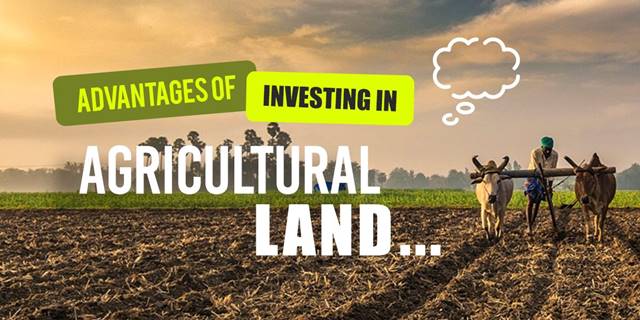Check out 5 things to consider before buying Farmland for yourself.
For good reason, the land is considered a reliable investment. The land value never decreases, infact there is always hope of multiple times returns. There’s a fixed amount of it, for one thing, and it’ll provide a basis for a whole host of other activities. For certain kinds of land, farming is an appropriate use – and it’s easy to see why this might appeal to those of us who’ve been brought up on images of pastoral idyl, and who like the idea of living off the land.
Before you jump into a decision of this kind, however, it’s worth thinking about a few points in particular.
Let’s take a look at a few of them –
What are you going to do with your farmland?
The scale and ambition of your farming activities will play a big role in determining the return on your investment. If you’re just looking to produce fruits and vegetables for your own satisfaction, then you can sink as much money into it as you would any other hobby. This way you can get healthy food & fruits for your family. If you’d like to get into commercial farming, getting a return on your investment, then you’ll need to think more carefully about the amount you’re spending, and the timescale according to which you’ll get a return on the investment.
Business Plan
Here’s where a good business plan is more or less obligatory. It will provide a means not only of troubleshooting your intentions but of communicating them to would-be collaborators and investors.
Check Your Finances
If you’re able to pay for the land in cash up-front, then you might think that it’s sensible to do so. But this might leave you with limited funds available as capital. It might be that the cost of interest payments is offset by the profits you’re able to earn by investing in the equipment and materials that you need to get started.
Farming Insurance
When you’re trying to make a living through farming, you’re exposed to a wide range of risks. Weather patterns may have a huge impact on your success or failure, as might the spread of pests and diseases.
While you can put in place measures to limit the impact of these things, insurance is still an essential means of absorbing risk. Look for specialized farming insurance; it’ll more reliably deal with the kinds of risk you’re dealing with.
Location, Location, Location
The site of your farmland matters enormously, not just because of convenience and ease of access, but because of the local climate, you’ll be dealing with. Work out the kind of soil that you’ll be planting in, and how drainage is going to work. Pay particular attention to rarely-seen, catastrophic problems like floods.
I am sure now you have got an idea of Farming Real Estate and hope you are ready for an investment in farmland. All the best!

